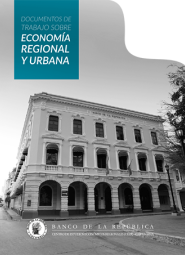The Board of Directors of the Central Bank of Colombia maintains the Benchmark Interest Rate at 4.5%
The Board of Directors of the Central Bank of Colombia in today's session decided to maintain the benchmark interest rate at 4.5%. This decision took into account the following aspects:
- The recovery of the United States' economy is expected to continue after a weak first quarter. The euro zone and Japan continue growing modestly, and the main emerging economies continue slowing down or exhibiting historically low growth rates. With the new information available, it is likely that the average growth rate of Colombia's trading partners in 2015 will be lower than in 2014.
- The strengthening of the US dollar vis-à-vis the majority of currencies has partially reversed. Colombia's risk premia and those of other countries in the region have decreased, although remaining at higher levels than the average for 2014. The behavior of the prices for commodities exported and imported by Colombia suggests that part of the accumulated fall in the country's terms of trade will become permanent and will affect national income negatively.
- The Colombian economy is adjusting to the new external conditions. The available data suggest a slowdown of consumption and investment in some sectors. This is consistent with the fall in national income and the lower incentives to invest in sectors that produce natural resources. Additionally, the income originated in exports has fallen as a result of the lower international prices of some of our main exports (especially that of oil) and the low growth in the volume of industrial exports.
- In contrast, it is expected that the strength of the labor market helps to absorb the slowdown foreseen for consumption. Likewise, it is expected that investment in civil works and construction will keep its dynamism and that, in time, the real devaluation of the peso will have a positive impact on the behavior of exporting sectors as well as on those competing with imports. Inasmuch as the impact of the oil shock dissipates, it is natural to expect the economy to return to its long-term trend.
- Annual inflation increased in March, reaching 4.56%. The acceleration of inflation is explained mainly by the greater pace of increase in the price of foodstuffs. The average of core inflation indicators registered 3.65%.
- Analysts' inflation expectations for December 2015 stand at 3.76%, and those for April and December of 2016 stayed relatively stable, close to 3.0%. Those embedded in public debt bonds decreased, registering at the upper half of the target range.
Summing up, the slowdown that started by the end of 2014 from an output level that was close to the full use of productive capacity is expected to continue in 2015. Inflation increased mainly due to transitory factors, and its expectations are above 3.0%. Given that part of the reduction of national income is structural, domestic expenditure of the economy must adjust. The Board will continue to monitor the size of this adjustment and its consistency with long-term income, sustainability of the external deficit, and, in general, macroeconomic stability. Similarly, the Board reaffirms its commitment to maintaining inflation and its expectations anchored to the target, acknowledging that there is a transitory increase in inflation.
The Board will continue monitoring carefully the behavior and projections of economic activity and inflation in the country, the asset markets, and the international situation. Also, the Board reiterates that the monetary policy will depend on the information available.





















































